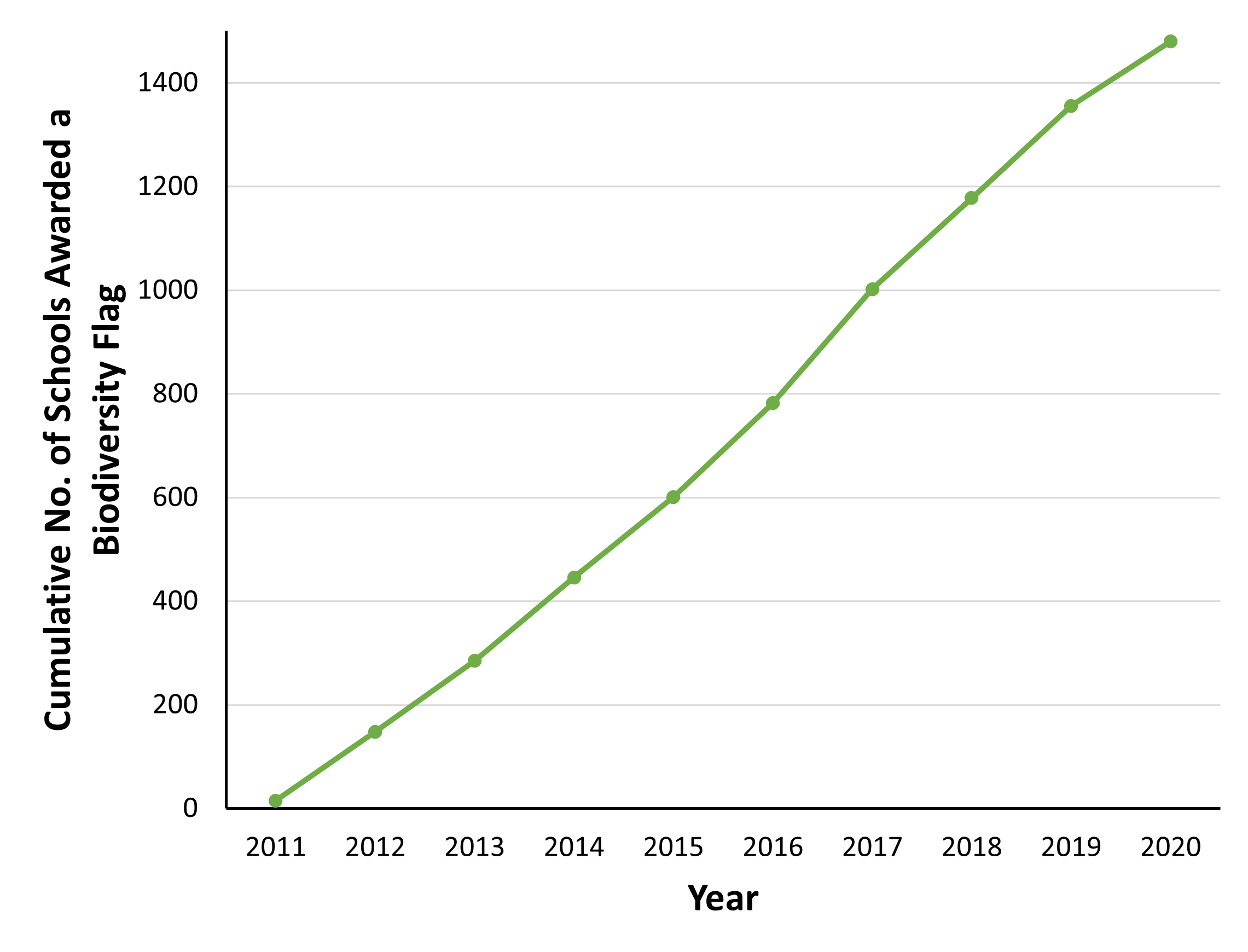| Current status | 2022 |  |
| Short term status | 2018 - 2022 |  |
| Long term status | 2011-2022 |  |
Click on the charts below in order to see the full resolution versions.
The Green-Schools programme is coordinated by FEE (Foundation for Environmental Education) at an international level and is known internationally as ‘Eco-Schools’. Eco-Schools, is an international environmental education programme, environmental management system and award scheme that promotes and acknowledges long-term, whole school action for the environment. The aim of Eco-Schools (Green-Schools in Ireland) is to increase students’ and participants’ awareness of environmental issues through classroom studies and to transfer this knowledge into positive environmental action in the school and also in the wider community. Schools that have successfully completed all the elements of the programme are awarded the ‘Green Flag’. This award has now become a well-recognised international Eco-Label. To ensure high standards are maintained and the sustainability of the programme the award has to be renewed by award recipients every two years.
An Taisce has operated the Green-Schools programme in Ireland since 1997 and operational and institutional partnerships are very much at the core of successful delivery and development of the programme. The Green-Schools programme is operated in partnership with Local Authorities throughout Ireland and is funded by the Department of Environment, Climate and Communications; the Department of Housing, Local Government and Heritage; the Department of Tourism, Culture, Arts, Gaeltacht, Sports and Media; the Department of Transport and the Department of Education. The programme also has several commercial sponsors including the National Transport Authority, Irish Water and long-time sponsors of the programme the Wrigley Company.
There are currently over 4,000 primary, secondary and special schools participating in the Green-Schools programme. This is one of the reasons why the Irish Green-Schools programme is considered one of the most successful national programmes within the international network of 66 FEE countries and is recognised as an example of international best practice.
The Green-Schools programme in Ireland is operated in a thematic manner. The themes are (1) Litter & Waste, (2) Energy, (3) Water, (4) School Travel, (5) Biodiversity, (6) Global Citizenship Litter & Waste. Biodiversity is the fifth theme of the programme to be introduced at a national level. It was launched as an official theme of the Green-Schools programme with the support of the National Parks & Wildlife Service in September 2010. The overall aim of this theme is for schools to increase awareness of the importance of biodiversity, the services it provides and for students to understand its impact on our everyday lives. Participating schools are encouraged to create a positive impact on the biological diversity of local flora and fauna where possible. Schools are also encouraged to improve and preserve the natural quality of important local habitats such as meadows, rivers, woodlands, coastal areas etc., by designing and implementing a biodiversity action plan. Furthermore, schools aim to improve biodiversity locally by undertaking various projects such as planting native wildflower gardens, planting native trees, erecting bird and bat boxes, organic gardening and creating nature trails. Schools regularly undertake various action-based projects as part of the programme including surveying local ecosystems, habitat mapping and participating in national and international species surveys and recoding programmes.
More information on Green-Schools in Ireland can be found here:

